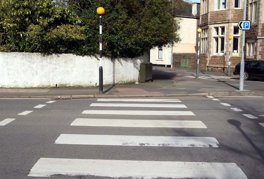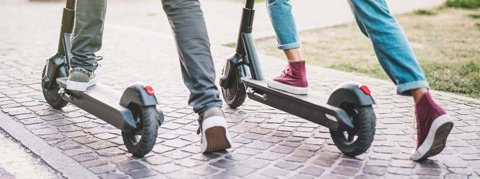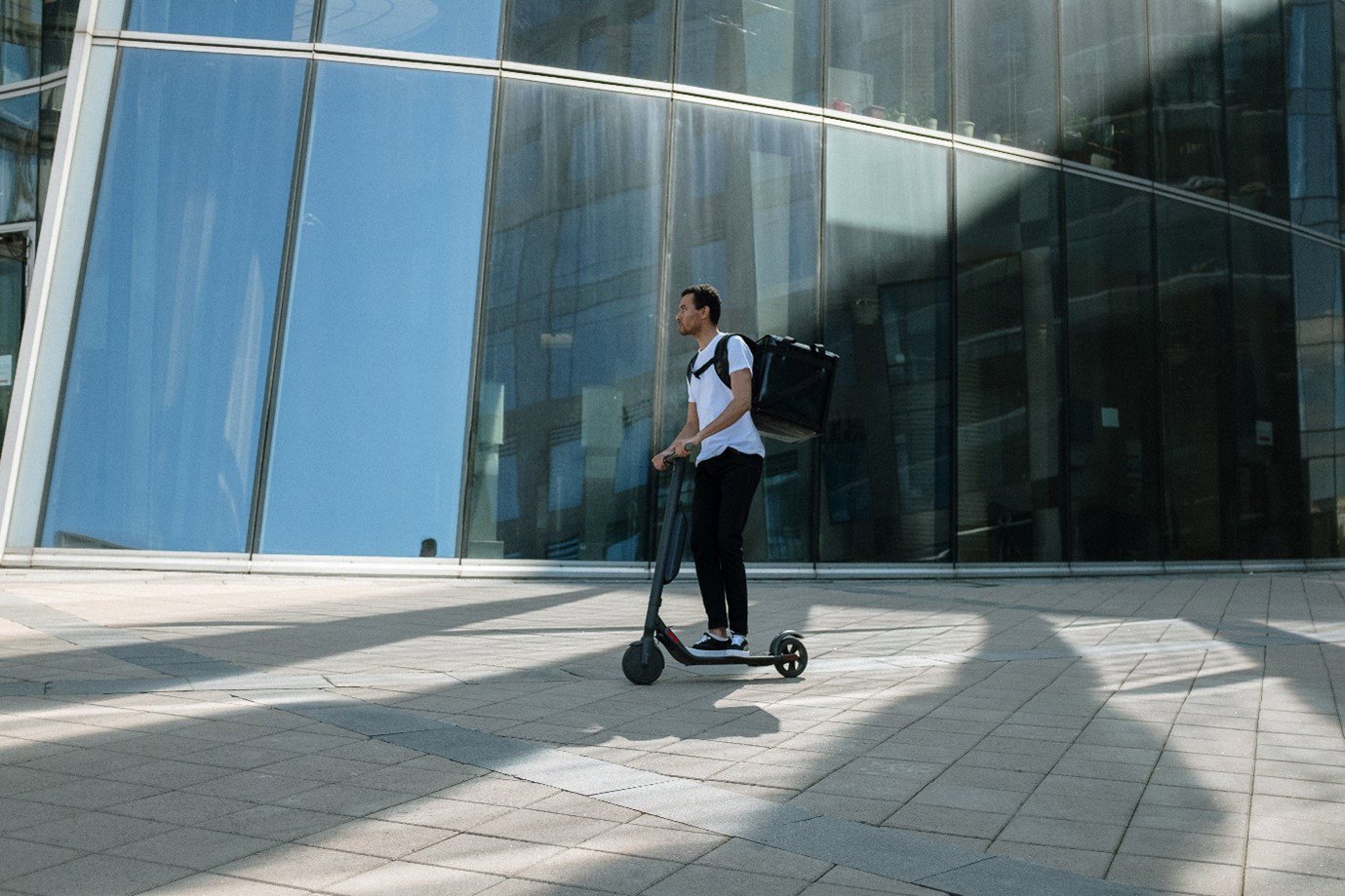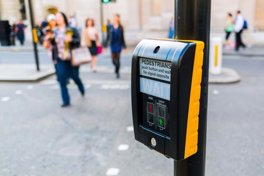What are the Current Rules for E-Scooters?
In England and Wales, riders are banned from using e-scooters on pavements and must stick to a maximum speed limit of 15.5 mph. But Transport for London has introduced stricter measures in London during the trial.
This includes:
- A lowered speed limit of 12.5 mph
- Lights at the front and rear of the e-scooters
- Audible warning systems
- Drivers must be aged 18+
- Drivers must have either a provisional or full driver’s license
Riders must also complete an e-learning safety course before being allowed to hire an e-scooter.
Currently, it’s still illegal to ride privately-owned e-scooters in England and Wales, and any riders caught doing so can face a £300 fine and 6 points on their licence.
But sadly, the sight of people breaking this law isn’t an uncommon one. Currently, the only legal way to ride an e-scooter in London is by using a rental e-scooter.
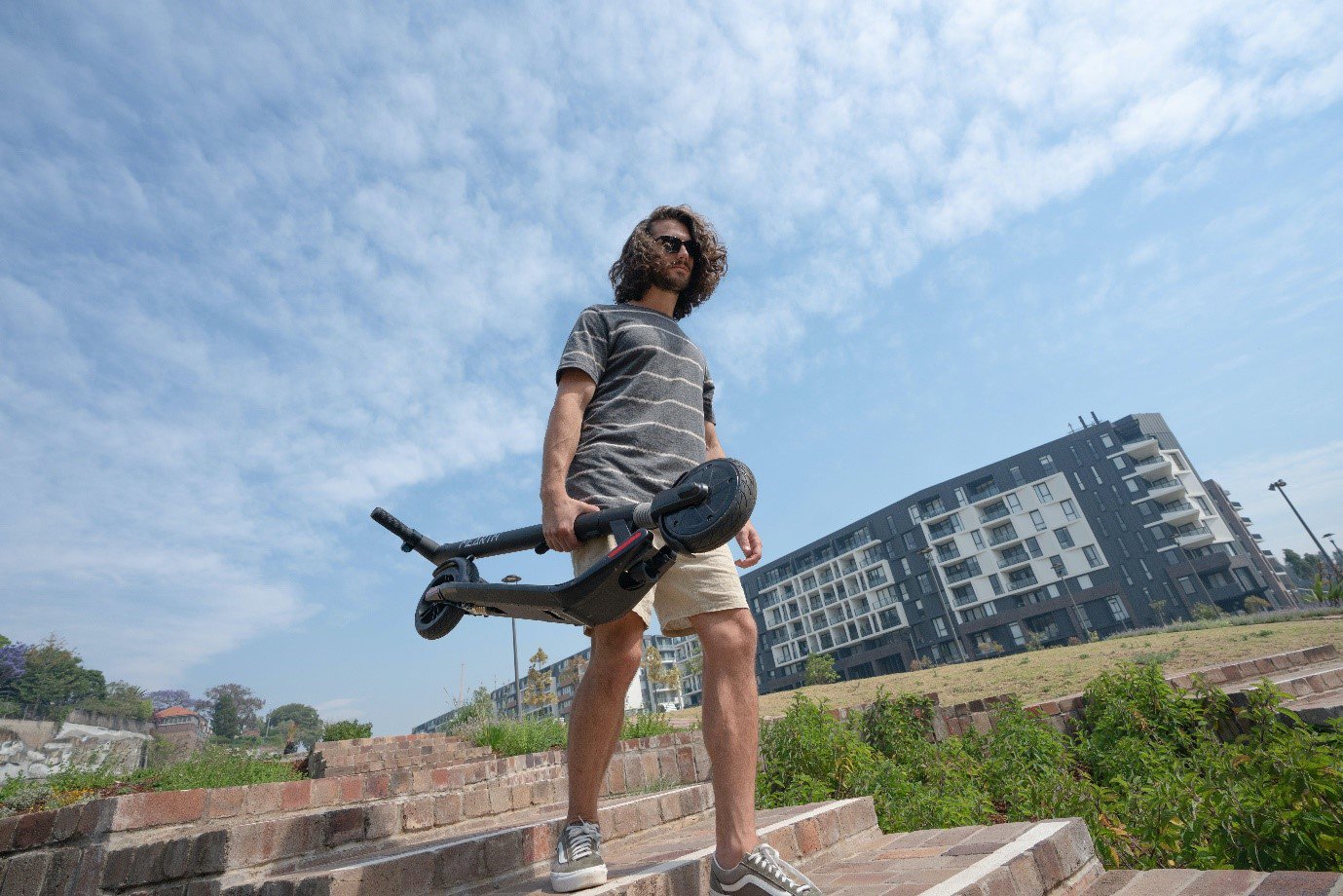
Are E-Scooters Safe?
E-scooters can be safe as long as they’re built well and have key safety features in place. But there are some things to be aware of that could put you at risk on the roads:
- Because of their small wheels, e-scooters can struggle on uneven roads or roads with potholes
- The lack of mirrors or indicators means that e-scooter riders can’t signal to other vehicles on the road or see vehicles behind them. Riders also can’t lift a hand off to signal, unlike someone on a bicycle
- As riders stand upright on the e-scooter, this puts them at risk of being thrown off quickly, with more force than a cyclist. According to the Danish Transport Authority, e-scooter riders are 8 times more at risk of a head injury than a cyclist
- Some e-scooters don’t include lights, making them much harder to see if travelling about at night. For e-scooters with lights, they tend to be a lot less bright than those on a bicycle
- E-scooters make far less noise than a car, which can put pedestrians at risk if they don’t hear them coming
Where are the London E-Scooter Trials Happening?
The e-scooter rental scheme has launched in:
- Ealing
- Canary Wharf
- The City of London
- Hammersmith and Fulham
- The Royal Borough of Kensington and Chelsea
- Richmond upon Thames
- Camden
- Southwark
- Lambeth
- Westminster
Each borough will have between 60 and 150 e-scooters available to rent but operators may have the option to increase this capacity if the trial goes well.
Extension of the London Trial
The first phase of the trial in June was successful, with over 500 designated e-scooter parking locations being available. Almost 2 million journeys were made during this time, with 4,425 e-scooters available for hire.
On 25th October 2022 the Transport for London extended the trials of rental e-scooters, following the response from the guidance that allows local authorities to continue trials until 31st May 2024.
Purpose of the Extension
The Government plans to create a new category of vehicles in legislation, which will include e-scooters. By continuing the trial of offering rental e-scooters, it’ll make sure that London is learning all about e-scooters and the role that they can play in London’s transport.
Safety Standards
In this next phase of the trials, the safety requirements were enhanced. It took into account everything that was learnt from the previous trial, including feedback from riders and what they’ve learnt from other cities.
Operators who are taking part in the trials will continue to provide critical data to the Transport for London. Safety of the riders and everyone who’s using the roads remains at the core of the trial. The data that is shared will help to shape the future of London’s transport.
Interim Findings of the London E-Scooter Trial
To support a ‘green’ recovery, the Department for Transport legalised trials of rental e-scooters across the UK. The aim of the trial is to gather data to help form future legislation and regulations.
One of the largest areas taking part in the trial is the Transport for London, who’s working in partnership with London Councils and 3 e-scooter rental companies.
Over the course of the trial, Transport for London have been able to gather data about e-scooters, including how they are being used, and undertake stakeholder engagement. With the trials due to continue until May 2024, here’s what’s been learnt so far.
Here’s how e-scooters were used between June 2021 and November 2022, when the interim findings report was published.
E-Scooter Usage
Here’s an overview of how e-scooters were used between June 2021 and November 2022:
- 4,000+ e-scooters were used
- 2 million+ journeys were made
- 5 million+ kilometres were travelled
- 1.3 rides per e-scooter, per day, on average
- Average trip duration was 17 minutes
Patterns of Usage
The interim findings report highlights that the peak times were in the morning and evening. This reflects the patterns we see in weekday usage of other transport types in London, which suggests that riders are also using e-scooters for their work commute.
- 52% of riders were repeat users
- 20,000+ new riders joined each month
Safety Concerns
While e-scooters were initially thought to impose an increased risk of injury, the interim report painted a positive picture in regard to the safety of the riders and other road users, including pedestrians and drivers.
Safety is at the forefront of the trials, with the Mayor of London’s Vision Zero target to eliminate all serious injuries and deaths by 2041.
London has incredibly high safety standards, which went beyond the national standards that were expected. For example, London reduced the speed limit, installed larger wheels and lights.
- 4.2 serious injuries were reported per million km travelled
- No fatal accidents
- 22 serious injuries reported
- 87 users banned for reckless riding
E-Scooter Accidents
Despite the interim findings report of the e-scooter trial in London painting an overall positive picture of the safety concerns, it’s important to note that serious accidents do occur. It’s also vital to consider that this only covers one area of where the trials took place.
Number of Collisions
In 2022, there were 1,492 reports made were an accident involved an e-scooter in Great Britain, including:
- 11 fatal accidents (e-scooter)
- 1 fatal collision (pedestrian)
- 356 serious injuries (e-scooter)
- 60 serious injuries (pedestrian)
- 17 serious injuries (cyclist)
- 782 minor accidents (e-scooter)
- 172 minor accidents (e-scooter)
When the Accidents Occurred
In 2021 and 2022, all e-scooter accidents that were reported followed the same pattern.
Both years experienced a peak in accidents starting around 6:00am, where it increased gradually throughout the day, up until 4:00pm – 5:00pm.
During the day, there was a dip at around 10:00am, following a downward trend starting from 5:00pm – 10:00pm.
It’s interesting to see that the patterns of accidents didn’t change much at all between a 12-month period. The findings suggest that the most accidents occur during the commute to work, where the roads are busier. This further implies that e-scooter riders use the vehicle as an alternative mode of transport to travel to work.
With this important data available, the Department for Transport will be able to evaluate the best next steps forward to reduce this further.
Claiming Compensation Following an E-Scooter Accident
If you have been involved in an e-scooter accident, whether you were the rider, pedestrian, or another road user, we can help.
We’ll discuss your case in detail, to create a picture of what happened at the time of the incident. Based on the information you provide; we’ll give you an idea of whether or not your claim is likely to be successful.
If we’ll be happy to take your case on, we’ll explain your legal options. We’ll only communicate with you in plain English, so you don’t have to worry about complicated legal jargon.
If you would like to book a free consultation, please get in touch with one of our Personal Injury Lawyers today.
